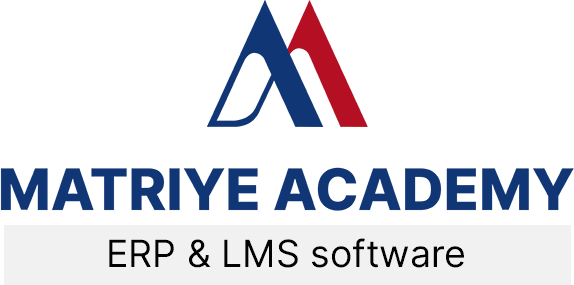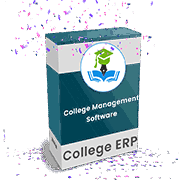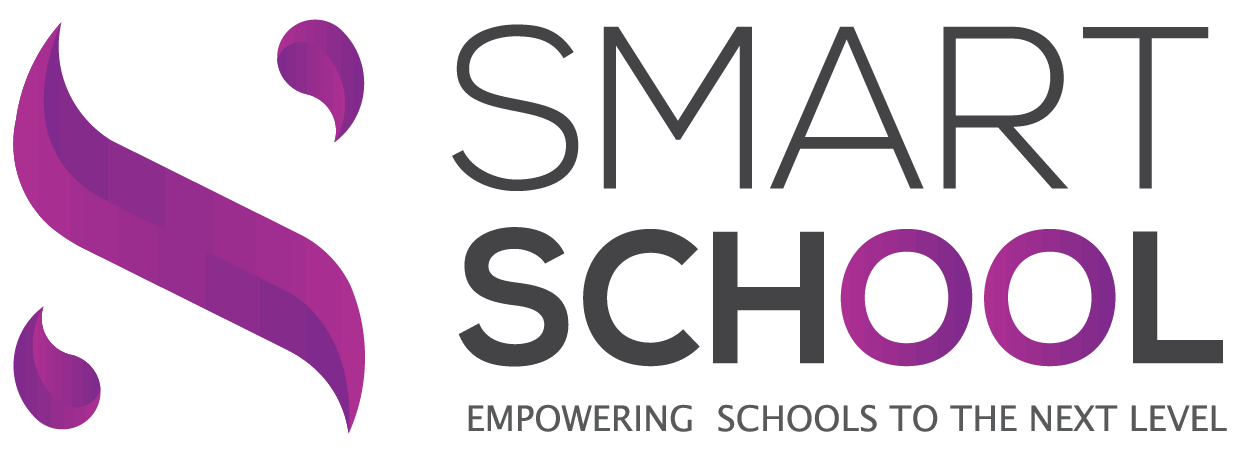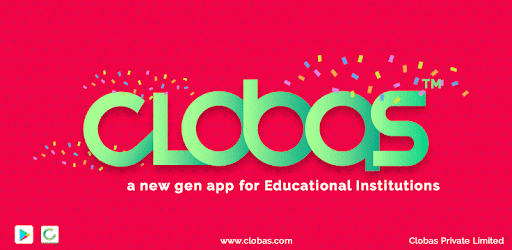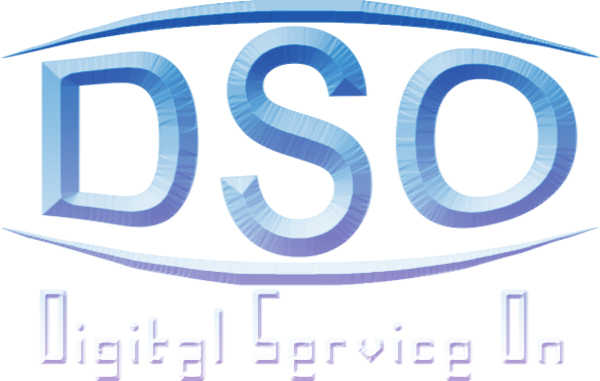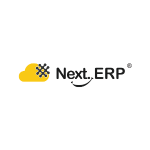Yes, College Management System may be accessed from a variety of devices and platforms. It is meant to work with a variety of devices, including computers, tablets, and smartphones. Users may access the system from any location and on any device thanks to its cloud-based platform, as long as they have an internet connection. This provides ease and flexibility for students, professors, and administrators, allowing them to manage college operations and access information at any time and from any location.
List of 20 Best College Management System
Matriye EdTech - our advanced ERP software simplifies institute management, while our inclusive LMS platform enables educators to create engaging lessons and track student advancement. With flexible solutions tailored to your specific requirements, M...Read More Matriye EdTech
ECR Turbo is a versatile college ERP software trusted by numerous institutions. With its user-friendly interface, it simplifies the management of staff, library, canteen, and students. ECR Turbo has revolutionized administrative tasks in various doma...Read More Ecr Turbo
dSMS, our innovative Cloud-based SaaS platform specifically designed to simplify administrative and academic processes for Schools and Colleges. Forget about the burden of maintaining complex infrastructure - our Web-App operates seamlessly on all de...Read More dSMS
EdFly Learn - the advanced learning management system suited for educators and students. With a user-friendly interface, it provides a complete E-learning platform and effective performance monitoring for seamless learning. Discover the potential of...Read More EdFly Learn
Cynaptx solution for Career Service Management (CSM). Our revolutionary software simplifies daily tasks and maximizes results for all involved parties. With a user-friendly interface and comprehensive features, Cynaptx empowers career services staff...Read More Cynaptx
SYNTH ED, a trusted partner for prominent educational and healthcare organizations in the ever-evolving digital landscape. Our forward-thinking approach goes beyond technology as we guide institutions through the complexities of our dynamic era. Coun...Read More SYNTH ED
Innate Infotech School Management System solution for optimizing school functions. Our all-in-one software offers advanced features like Time Table, Attendance, Examinations, Gradebooks, News, Hostel, Library, and Transportation, all in a seamless in...Read More Innate Infotech - School Management System
ScholarSYS stands out from competitors with its advanced search capabilities, customizable data entry screens, and seamless integration with MS Office. This user-friendly platform also offers flexible menu options that can be tailored to meet the uni...Read More ScholarSYS
Edusys College ERP is a college management solution designed to enhance efficiency and effectiveness in all aspects of your institution. Our cloud-based software offers a cost-effective approach to streamlining day-to-day operations, providing a seam...Read More Edusys College
Edumarshal is solution for turning your educational institution into a modern eCampus. It offers a wide range of tools and features specifically designed for schools, colleges, universities, and training institutes. Explore our free demo to discover...Read More Edumarshal
EDIT-IMSis a solution for efficiently managing all operations of educational institutions. This powerful software offers a variety of modules such as Admissions, Student Activities, Staff Management, Exam and Assignment tracking, Library Management,...Read More EDIT- IMS
Campus7 is a school management software that caters to the needs of multiple campuses in India. Our cost-effective ERP solutions are designed to simplify administrative tasks, improve communication, and enhance academic performance for schools, colle...Read More Campus7
Smart School - the leading ERP solution designed specifically for schools and educational institutions. With its advanced features and seamless integration with mobile applications, Smart School has become a trailblazer in School Management Systems...Read More SMART SCHOOL
CLOBAS is a cloud-based solution for campus management. Improve efficiency, growth, and operations with advanced features and real-time data. Manage every aspect of your institution from a centralized platform and bid farewell to manual processes. Ex...Read More CLOBAS
JILIT Campus Lynx is a and flexible IRP system specifically designed for the dynamic operational demands of modern educational institutions. Fully equipped with smart card integration, this customizable solution caters to the distinct needs of both u...Read More JILIT Campus Lynx
Web Librarian is a advanced library management and automation software specifically designed for information providers, managers, and librarians. Our comprehensive solution allows for seamless management and distribution of information from multiple...Read More Web Librarian
LSAcademia offers a complete enterprise resource planning (ERP) solution for academic institutions such as schools, colleges, and institutes. This all-in-one software efficiently integrates multiple administrative departments to facilitate seamless c...Read More LSAcademia
DSO School 2.0 - the leading management software designed for educational institutions. Keep student records organized, simplify accounting and inventory management, and easily monitor fee payments with our comprehensive reporting system, including b...Read More DSO School 2.0
Yash Campus, a Educational ERP solution designed for schools, colleges, and other educational institutions. Our modular structure allows for easy customization to meet the unique requirements of any institute. With a browser-based interface and multi...Read More Yash Campus
NextERP Coaching Class ERP is a institute management software that simplifies and automates various administrative tasks, from admissions to fee collection to library management. Say farewell to manual processes and switch to NextERP for a smarter an...Read More NextERP Coaching Class ERP
Learn More About College Management System
- What Is College Management System?
- What Are The Recent Trends In College Management System?
- Benefits Of Using College Management System
- Important Factors To Consider While Purchasing College Management System?
- What Are The Key Features To Look For In College Management System?
- Why Do Businesses Need College Management System?
- How Much Time Is Required To Implement College Management System?
- What Is The Level Of Customization Available In College Management System?
- Which Industries Can Benefit The Most From College Management System?
- Conclusion
What Is College Management System?
A college management system is a software platform that is specifically designed to streamline and automate a college or university's administrative, academic, and financial processes. It functions as a central center for all departments, hence increasing overall efficiency and productivity. Student information management is an important aspect of a college management system since it stores and manages all student data, including personal information, academic records, and attendance.
This not only lowers paperwork, but also makes it easy to monitor and track students' progress. Another critical feature of a college management system is its academic management capabilities. This encompasses course scheduling, assignment and test management, and grading. This system allows instructors to conveniently design courses and manage student performance, while students can view their schedules and grades in one spot.
Finance and accounting tasks are also included in the college management system. It can manage invoices, payments, financial aid, and scholarships. This provides better financial control and transparency for both the school and the students. Furthermore, a college administration system frequently includes communication and collaboration features, allowing students, instructors, and staff to effortlessly interact and exchange data.
This can include internet portals, message systems, and discussion boards. A college management system can handle administrative responsibilities like admissions, human resources, and facility management. By automating these operations, employees are relieved of the load of paperwork and manual labor, allowing them to devote more time to other critical responsibilities.
Overall, a college management system provides a comprehensive solution to help colleges and universities manage and improve their daily operations. By centralizing data and automating operations, institutions can save time, decrease errors, and increase overall efficiency. When selecting a college management system, it is critical to assess its features, usability, and integration capabilities to ensure it matches the institution's specific requirements.
What Are The Recent Trends In College Management System?
The education sector is always evolving, and so is the technology used to manage colleges and universities. College Management Systems (CMS) have superseded conventional manual record-keeping and administrative operations. These digital platforms have become a vital tool for schools looking to streamline operations and increase overall efficiency. To make an informed purchase, a buyer must stay up to date on the newest CMS trends. Consider the following current trends in college management systems:
1. Cloud-Based Solutions: As cloud technology advances, an increasing number of CMS now provide cloud-hosted solutions, allowing users to access data and information from anywhere at any time. This eliminates the need for physical servers and cuts maintenance costs for the organization.
2. Mobile Accessibility: One important trend in CMS is its availability on mobile devices. Students, instructors, and staff can now use their smartphones to access the system, making communication and staying up to date easier and more comfortable.
3. Integration With LMS: Many CMS now integrate with Learning Management Systems (LMS), providing a one-stop solution for all elements of college administration, such as admissions, course management, and student performance tracking.
4. AI And Analytics: Some CMS now use Artificial Intelligence (AI) and Analytics to forecast student performance, identify at-risk pupils, and deliver tailored learning recommendations.
5. Paperless Processes: A growing trend in CMS is the transition to paperless processes such as digital form submissions, online fee payments, and electronic document management, which reduces the use of paper and promotes sustainability.
6. Virtual Classrooms: In response to the COVID-19 pandemic, many universities have implemented virtual classrooms that are connected into their CMS, enabling distant learning and ensuring educational continuity.
7. Collaborative Tools: Many CMS now include collaboration tools like discussion boards and shared workspaces to help students and instructors communicate and work together more effectively.
8. Personalized Dashboards: Another rising trend is the ability to personalize dashboards for each user, displaying relevant information and notifications based on their function and needs.
9. Data Security: With growing worries about data breaches, CMS providers are concentrating on establishing severe security measures, such as encryption and secure access controls, to safeguard critical information. Finally, staying current with the latest trends in college management systems is critical in selecting the best platform for your institution. As technology advances, it is critical to choose a CMS that not only satisfies your present requirements but is also capable of adapting to emerging trends.
Benefits Of Using College Management System
The College Management System (CMS) is a comprehensive platform that enables educational institutions to effectively manage and simplify their administrative and academic activities. It has a variety of characteristics that make it a vital tool for universities trying to increase productivity and the overall learning experience for its students.
we'll look at the different advantages of adopting a College Management System.
1. Streamlined Admissions Process: One of the most significant advantages of employing a College Management System is the ability to automate and streamline the admissions process. This technology allows institutions to handle the entire process, from collecting applications to analyzing them and sending out offer letters, all in one spot. This saves time and resources, making the admissions process more efficient and user-friendly.
2. Efficient Course Management: With the College Management System, colleges may effortlessly manage their courses, curriculum, and class scheduling. Faculty members can submit course materials, assignments, and grades to a central area that students can access, providing a continuous flow of information. It also enables for easy tracking of student attendance, performance, and progress, which improves academic administration.
3. Effective Communication: CMS facilitates communication among students, faculty, and parents. It includes features such as instant messaging, chat, and notifications, which let students engage with their peers and faculty members. This promotes a collaborative learning environment and enables for the rapid and timely sharing of critical information.
4. Secure Management Of Student Data: With so many parties involved in college administration, data security becomes increasingly important. CMS offers a safe platform for storing and managing sensitive student information. It enables controlled access to data, guaranteeing that only authorized users can view or modify it. This helps to avoid data breaches and ensures the privacy of student information.
5. Efficient Financial Management: Colleges handle a variety of financial activities, such as fee collecting, payroll management, and vendor payments. The College Management System provides a simple and effective approach to manage these financial processes. It enables online fee collection, automates payroll processing, and tracks costs, making financial management less time-consuming and error-prone.
6. Integration With Other Systems: The College Management System integrates smoothly with other systems such as library management, hostel management, and online learning platforms. This provides a comprehensive view of college operations and facilitates improved cooperation among departments. It also saves time and effort spent manually entering data between different platforms.
Important Factors To Consider While Purchasing College Management System?
When it comes to college administration, an efficient and effective College Management System (CMS) is essential. With so many options on the market, it might be difficult to choose the best CMS for your school. To make your selection easier.
Here are some crucial considerations to consider while buying a College Management System:
1. User-Friendly Interface: Both administrators and students should be able to easily use the CMS. A convoluted interface might cause confusion and reduce system productivity.
2. Customization And Scalability: Because each college has distinct demands and requirements, it is critical to select a CMS that can be customized to match your institution's individual needs. It should also be scalable as your college grows.
3. Integration With Existing Systems: Before acquiring a CMS, ensure that it can be integrated with your current systems, such as payroll, student information systems, or learning management systems. This guarantees that data flows smoothly between different systems, eliminating human work and saving time.
4. Mobile Accessibility: In today's digital age, having a mobile-friendly CMS is essential. This enables students and instructors to access information and complete assignments on the fly, enhancing efficiency and convenience.
5. Security Measures: A CMS manages sensitive information such as student records, financial data, and personnel details. As a result, it is critical to select a system with strong security mechanisms in place to safeguard against cyber threats and data breaches.
6. Training And Support: Purchasing a CMS is a substantial investment, thus it is critical that the vendor provides sufficient training and support to your personnel to ensure the system runs smoothly. This will also help with any technical challenges that may develop.
7. Cost And ROI: While CMS costs are crucial to evaluate, they should not be the only deciding factor. Consider the long-term advantages and ROI that the system will provide to your institution. Consider factors such as decreased paperwork, higher efficiency, and improved data management.
What Are The Key Features To Look For In College Management System?
A College Management System (CMS) is a software system that simplifies administrative operations and increases overall efficiency in a college or university. With the increasing usage of technology in educational institutions, there is a diverse selection of CMS solutions on the market. As a buyer, you should examine many essential elements to ensure that you invest in the best CMS for your institution's needs.
Here are the key things to look for in a college management system:
1. Student Information Management: The primary purpose of a CMS is to handle student data. The system should be capable of storing and organizing student-related data such as personal information, academic records, attendance, and course registration. It should also be easy to obtain and retrieve this information for a variety of purposes.
2. Admissions And Enrolling Management: The CMS should feature an easy-to-use interface that streamlines the admissions and enrolling processes. It should provide online application forms, document verification, and fee payment integration. This will save time while also providing a more efficient and convenient experience for potential students.
3. Faculty And Course Management: The ideal CMS should have tools for managing faculty information, course scheduling, and assignments. It should also allow for real-time contact between instructors and students, such as via a messaging system or discussion boards. This tool facilitates effective course management and improves the learning experience for students.
4. Financial Management: A CMS should have tools for managing student fees, scholarships, and financial aid. It should also include a full report on the institution's financial situation, such as revenue, expenses, and budget projections. This will enable improved financial planning and decision-making.
5. Library Management: A comprehensive CMS should have capabilities that allow you to efficiently manage the college library. This involves computerized cataloging, circulation management, and tracking book availability. It should also have an online portal where students can search and reserve books, making the library experience more simple and accessible.
6. Contact And Feedback: An ideal CMS should allow for easy contact between students, instructors, and parents. It should include features such as web portals, email notifications, and SMS alerts to keep stakeholders updated on academic progress, crucial dates, and other announcements. It should also include a feedback mechanism that collects student and parent comments and suggestions for improvement.
7. Data Security: Given the sensitive nature of student information, data security is an important element to look for in a CMS. It should include strong security features to prevent unwanted access or data breaches. It should also have regular data backups and disaster recovery procedures to protect the security of information.
Why Do Businesses Need College Management System?
A College Management System is a complete software application developed to help educational institutions streamline and modernize their administrative activities. With the rising use of technology in many aspects of our lives, it is critical for businesses, particularly educational institutions, to implement current solutions to manage their operations efficiently. Here are some of the main reasons why organizations require a College Management System.
1. Efficient Student Data Management: With so many students enrolling in schools and institutions, manually handling their data might be overwhelming. A College Management System enables organizations to store and retrieve student information in a quick, secure, and structured manner.
2. Streamline Admission Processes: College Management Systems provide features such as online admission forms, fee payment, and document submission, making the admissions process easier for students and institutions. This eliminates the need for lengthy lines and paperwork, saving time and effort for both sides.
3. Automated Timetable Generation: Creating a timetable for classes and exams can be a difficult undertaking, particularly for larger schools. A College Management System automates this process by taking into consideration aspects such as course selection, teacher availability, and classroom availability. This assures the equitable and efficient distribution of resources.
4. Effective Communication: A College Management System serves as a primary communication center for students, professors, and administration. The technology allows institutions to communicate essential updates, circulars, and notifications to their students and staff, providing effective communication while preventing miscommunication.
5. Simplified Fee Management: Managing fee payments, reminders, and invoices can be difficult for organizations. A College Management System automates this procedure, making it easier for administrators to track outstanding payments, compile reports, and issue receipts.
6. Improved Academic Performance Tracking: College Management Systems include capabilities such as grade management, assignment submission, and exam tracking, allowing organizations to effectively monitor students' academic progress. This helps identify areas for growth and provides students with immediate feedback.
How Much Time Is Required To Implement College Management System?
The time required to develop a college management system varies depending on several aspects, including the size of the college, the complexity of the operations, and the level of customization necessary. On average, it takes 3 to 6 months to fully establish a college management system. This covers time spent on initial system setup, configuration, and testing, as well as data migration from existing systems.
The first stage in creating a college management system is to identify the institution's needs and requirements. This will entail identifying important stakeholders and their roles, comprehending the current processes and systems in place, and deciding desired outputs and goals. This initial stage can last up to four weeks. Next, the chosen software solution must be installed and configured.
This will include creating user accounts, templates, and workflows. The time required for this step will be determined by the system's complexity and level of customization. It normally takes 4 to 8 weeks to finish this process. Data migration is another critical component of developing a college administration system.
This includes transferring data from current systems such as student records, academic calendars, and financial information. The time required for this stage will be determined by the amount of data to be transferred and its complexity. It can take anything between two and four weeks. Testing and training can commence when the system has been configured and data migrated. This includes testing the system for flaws or problems and training staff and users on how to utilize it effectively.
This period normally lasts between 2 and 4 weeks. Overall, the implementation of a college administration system can take between three and six months. However, the time required varies based on the institution's requirements and the software solution used. To guarantee a successful implementation, important stakeholders must be involved throughout the process, along with effective planning and communication.
What Is The Level Of Customization Available In College Management System?
The level of customisation available in a College Management System (CMS) is critical in maximizing its use by educational institutions. CMS is a software system that automates many administrative and academic activities at a college or university. Before choosing a CMS, you should assess the extent of customization available to ensure that it matches your institution's specific needs.
Most modern CMS platforms include a great amount of customisation, allowing universities to adjust the system to their own needs and tastes. This includes modifying the user interface, user roles and permissions, as well as the system's features and modules. A CMS offers three levels of customization: basic, advanced, and fully configurable.
Basic customization options often include modifying the system's color scheme or logo to reflect the institution's identity, adding or removing specific functions, and limited modification of user roles. This level is appropriate for smaller universities or those with simple customisation requirements. Advanced customisation provides more possibilities, including the ability to create custom fields, edit current modules, and integrate third-party apps.
This level is best suited for medium-sized institutions with slightly more complex requirements. Finally, there is the option of using a fully configurable CMS, which gives institutions entire control over the system's design, features, and functionality. This level is ideal for larger colleges with complicated and unique requirements that cannot be satisfied by off-the-shelf products.
When choosing a CMS, it is critical to examine your institution's demands and select a platform that provides the level of customization that meets those requirements. Keep in mind that increased customization may necessitate more technical skills and money.
Which Industries Can Benefit The Most From College Management System?
College management systems (CMS) have become increasingly popular in recent years, with many educational institutions adopting them to streamline and enhance their operations. However, the benefits of CMS are not limited to just the education industry. In fact, there are several industries that can greatly benefit from implementing a college management system.
1. Education Industry: The obvious and most prominent beneficiary of CMS is the education industry. Whether it is a small private school or a large university, an effective CMS can bring about a significant improvement in the efficiency, organization, and overall management of the institution. It can automate various processes such as admissions, student record keeping, scheduling, and fee management, reducing the burden on administrative staff and allowing them to focus on more critical tasks.
2. Corporate Training: CMS can also prove to be valuable for organizations that offer training and development programs for their employees. With the help of a CMS, HR and training departments can easily manage employee progress, course completion, and certifications. Additionally, the system can generate detailed reports and analytics to evaluate the effectiveness of the training programs and identify areas for improvement.
3. Non-Profit Organizations: Non-profit organizations that provide educational services or scholarship programs can also benefit from a CMS. It can assist in managing student applications and tracking the progress and success of their programs. This can help in streamlining the application process and ensuring transparency and accountability in the distribution of scholarships.
4. Government Agencies: Government agencies responsible for overseeing education and vocational training programs can also benefit from a CMS. By incorporating the system, these agencies can efficiently manage student enrollment, track academic progress, and monitor the performance of educational institutions. This can help in ensuring that government-funded programs are used effectively and efficiently.
5. Language Schools: Managing student enrollment, attendance, and payments can be a daunting task for language schools. However, with the help of a CMS, language schools can automate these processes, making it easier for administrators, teachers, and students to stay organized. They can also use the system to develop and deliver customized lesson plans and track student progress.
Conclusion
To summarize, investing in a College Management System can significantly streamline and improve the administrative procedures of any educational institution. A college management system, with its comprehensive capabilities and user-friendly interface, can assist with student enrollment, course management, staff and faculty management, financial management, and other activities.
However, while deciding which college management system to buy, it is critical to carefully assess your institution's unique demands and requirements. Look for a system that has adjustable features to meet your specific needs and can be integrated with existing systems. To guarantee a smooth transition, make sure the system has a user-friendly interface and offers complete training and support.
Scalability is also an important consideration, as your institution may expand in the future, necessitating the system's ability to serve a greater student and faculty population. Furthermore, think about the security mechanisms in place to protect sensitive information and ensure data privacy. Finally, consider the college management system's pricing and licensing alternatives.
Evaluate your budget and select a system that provides the most value for money while still satisfying your institution's requirements. After carefully considering these variables, you can easily select the best college management system for your institution. With its numerous advantages, a college management system can improve efficiency, production, and overall student happiness at your educational institution. So, why wait? Select the best college management system today and elevate your institution's administrative processes to the next level.
College Management System FAQ's
Can College Management System Be Accessed Across Multiple Devices And Platforms?
Is College Management System Future-Proof and Adaptable To Emerging Technologies Like Ai, Blockchain or Iot?
College Management Systems are continually improving to keep up with the rapidly changing technology landscape. As a result, they are built to be future-proof and adaptable to new technologies like as AI, blockchain, and IoT.
These systems include flexible and adaptable capabilities, making it easier for institutions to incorporate new technologies as they become available. This ensures that the College Management System stays efficient and relevant in the foreseeable future, offering users a seamless and improved experience.
Is There A Free Trial Offered to Assess College Management System Before Committing?
Yes, many college management system suppliers provide a free trial period so that interested users can evaluate the system before making a commitment. This trial period allows customers to examine the system's features and operation and assess whether it fulfills their specific requirements. It is recommended that you take advantage of the free trial to see whether the college management system is a good fit for your institution and make an informed decision.
Does College Management System Offer Data Security Features And Meet Regulatory Compliance Standards?
Yes, College Management System includes advanced data security features like role-based access control, encryption, and backup and recovery. It also assures compliance with regulatory standards such as GDPR and FERPA, which protect sensitive student and teacher data. CMS maintains the confidentiality, integrity, and availability of sensitive data through strong data security measures and regular audits, providing consumers with piece of mind.
Can College Management System Integrate Seamlessly With Existing Tools And Platforms?
Yes, College Management System integrates effortlessly with existing tools and platforms. Our system is meant to be versatile and flexible, allowing for seamless connection with the software and applications that your college may already use. This integration removes the need for duplicate data entry while improving overall efficiency and productivity. To guarantee that your college's integration goes smoothly and successfully, our staff provides support and guidance throughout the process.

